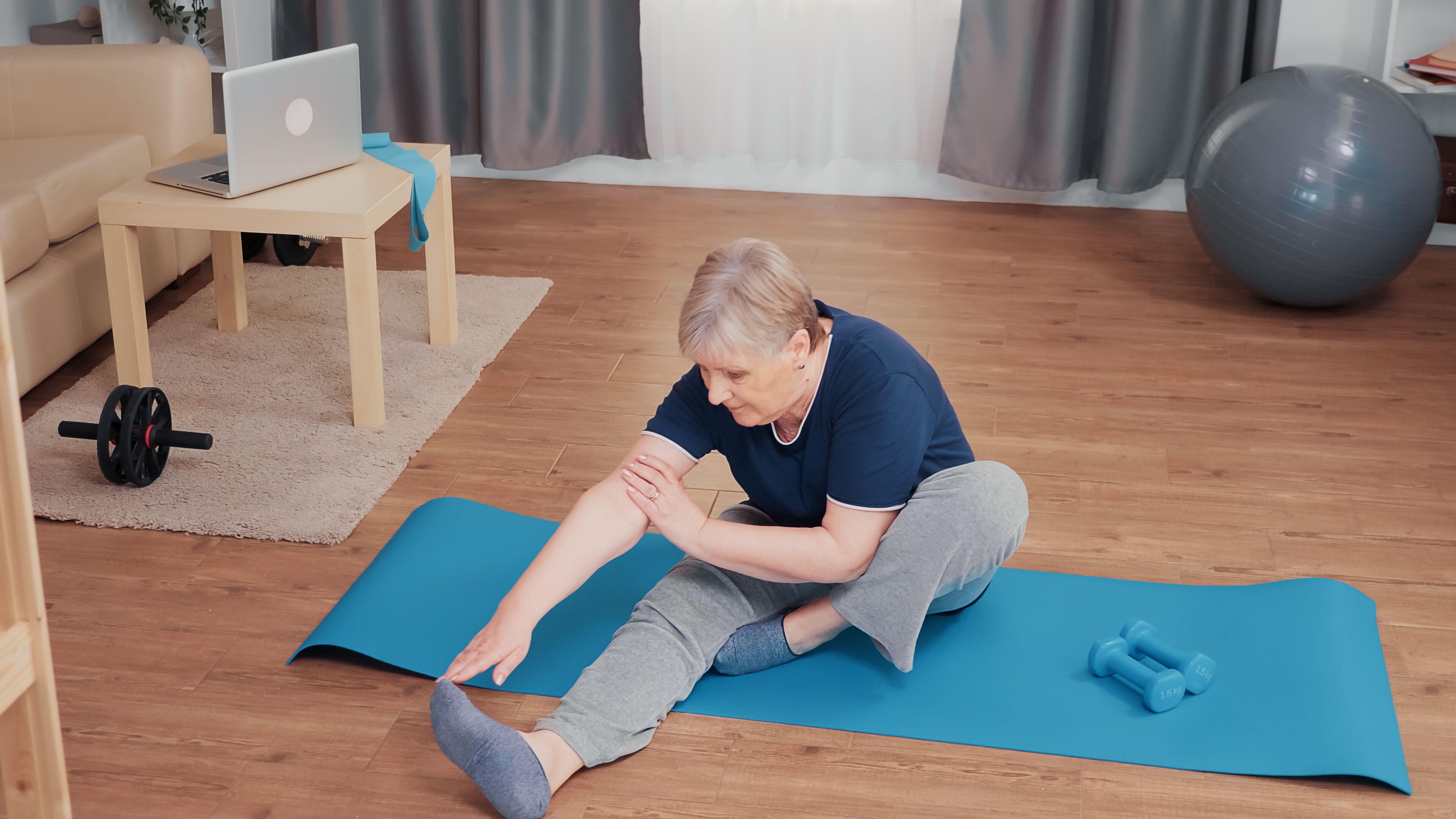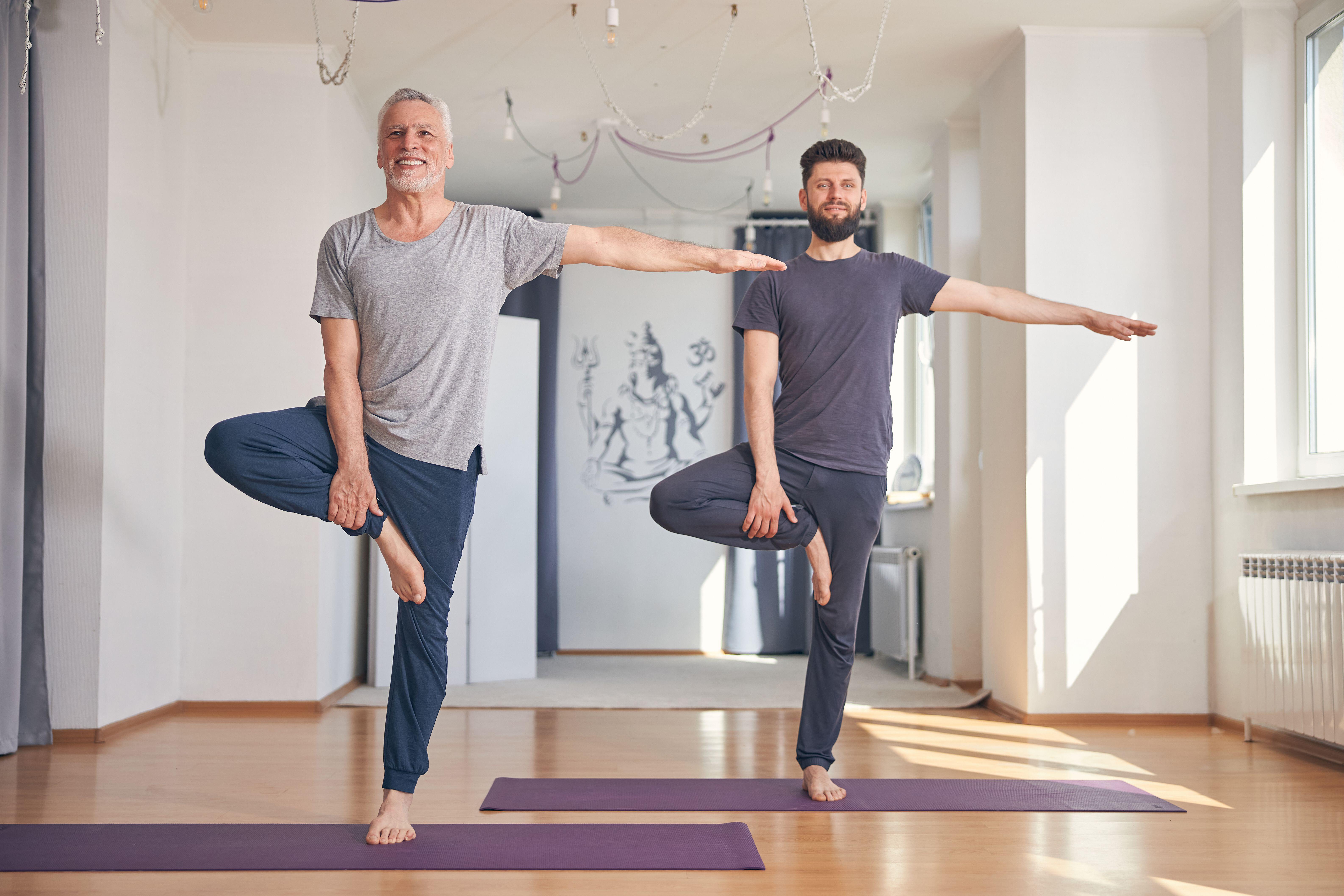Strength training is not solely the domain of bodybuilders; it is a crucial component of health and independence for everyone, particularly as we age.
When executed correctly, it plays a pivotal role in preserving bone density and building muscle mass, significantly enhancing overall quality of life.
However, the prospect of entering a gym can be daunting, and improper use of equipment poses risks, making safety paramount.
For seniors embarking on a strength training journey, understanding common pitfalls is essential to ensure a safe and effective start.
Here are seven common mistakes to watch out for when starting strength training as a senior.
1. Starting too heavy
“Our muscles, bones and connective tissues take time to adapt to resistance training, so if you start with weights that are too heavy, it creates unnecessary injury risk. It can also encourage poor movement patterns that are much harder to correct later,” explains Michael Betts, personal trainer and director of TRAINFITNESS.
Betts advises seniors looking to embark on their strength training journey to start off with body weight exercises or very light weights that almost feel too easy.
“Aim for 12-15 reps with perfect form before starting to think about increasing the weight,” recommends the personal trainer. “Approaching it like this builds strength progressively while at the same time teaching your nervous system the proper movement patterns to complete the exercises safely.”
2. Prioritising repetitions over technique
Sloppy technique doesn’t just stall progress; it increases injury risk.
“Prioritise slow, controlled movements over the amount of resistance or number of repetitions,” advises Leo Mathew, physiotherapist and rehabilitation service lead at Nellsar Care Homes. “Good technique helps prevent injuries and supports gradual progress.”
This is why seeking professional advice when starting out can be extremely beneficial.

“Invest in a few sessions with a qualified trainer who has experience working with older adults,” recommends Betts.
“They can assess your movement quality, design an appropriate programme and teach you proper form. This upfront investment prevents costly mistakes and gives you the confidence to train independently.”
3. Forgetting about a mobility warm-up
“If you’re strong but don’t have mobility, your movement patterns will be generally imbalanced and your exercise options will be limited,” says Betts.
“A lot of seniors jump straight into lifting before addressing issues like tight hips, rounded shoulders or limited mobility in their ankles which have developed from years of sitting.”
Betts recommends spending 10-15 minutes before a weights session working on dynamic stretches and mobility exercises to make your weight session more effective and reduce your risk of injury.
“The focus should be on your hips, shoulders and thoracic spine – the last of which is very commonly neglected,” says the personal trainer. “Preparing in this way prevents compensatory movements which are more likely to lead to injury and also ensures that the exercises are working the muscles they should be.”
4. Ignoring pain
Many people think pain is normal when it comes to strength training, but it’s important to listen to your body.

“Always begin new exercises with caution and progress slowly,” recommends Mathew. “Stop immediately if experiencing new pain, dizziness, or sharp discomfort – never force through these symptoms. Take advice if required.”
5. Neglecting balance and stability
“Traditional strength training often uses machines and supported positions that aren’t challenging for our balance systems,” notes Betts. “Balance is a fundamental part of functional strength that helps prevent falls and improves the quality of day-to-day movement – things that are incredibly important as we age.
“Include single-leg exercises, standing exercises and movements that challenge your stability. Simple progressions like standing on one foot, single-leg dead lifts or standing exercises with eyes closed help maintain the balance systems that naturally decline with age.”
6. Not allowing time for rest and recovery
Rest days from the gym are not lazy, they are crucial for your body’s recovery and for any long-term progress.
“Allow adequate rest during your exercise to improve strength, endurance and recovery,” advises Mathew. “Allow 2-3 rest days per week for muscle repair. Stay well-hydrated and eat nutritious foods to support and fuel recovery, performance and to maintain quality of life.”
7. Not eating enough protein
“Sufficient caloric and protein intake is required to build muscle and strength and repair from workouts and physical stress on the body,” explains Sam Quinn, personal training lead at Nuffield Health.
“We naturally maintain less muscle mass as we get older, and consuming the correct amount of protein to support our physical health and exercise goals is even more important. Between 1.1-2g of protein per kilogram of body weight is recommended to build strength and recover from your workouts.”
Good sources of protein include lean meats, poultry, fish, eggs, dairy products, beans, lentils, tofu, nuts and seeds.



